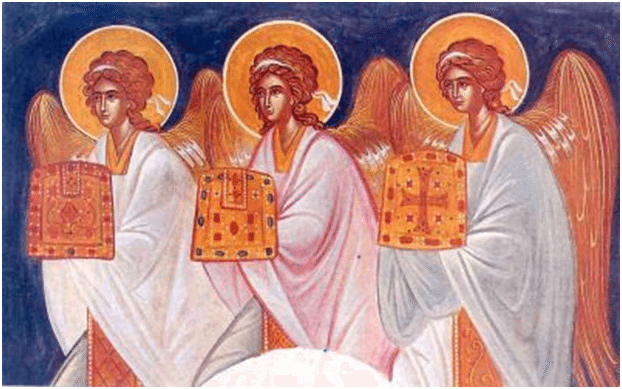|
The use of the exclamation “Alleluia” or "Hallelujah" was inherited by the first Christians from Hebrew worship. It means, “God be praised” or “Praise God”. In the Orthodox Church it is in itself an exclamation as well as an exhortation to praise God. It is used throughout all the prayers and services of the Orthodox Church. However, its deeper significance is derived from its use in the Holy Liturgy which is the pre-eminent service of worship in the Orthodox Church and the source for all the other Church Services.
In the Holy Liturgy, it is sung as a hymn of praise and greeting just before the reading of the Gospel, which is in itself, according to the long patristic tradition of the Orthodox Church, the Word of God, Christ Himself. Father Alexander Schmemann, writing about the singing of the Hallejujah before the Gospel reading, says that “its logical content can of course be translated with the words “praise God”, but by this content it is not exhausted….. for the word itself is a transport of joy and praise before the appearance of the Lord, a 'reaction' to his coming.” St Nicholas Cabasilas furthers this explanation by commenting that “before the presence of Christ on Earth, it was not possible for man to be joyful because only Christ brought us joy. Whoever was joyful on Earth before His arrival, was joyful because they had become initiated into His Mystery.” In our Church Services, this joy can be expressed in the triumphant singing of "Hallelujah" as a refrain to celebratory psalm verses sung at the beginning of the Matins service during a long vigil service. It is also shown in a more solemn manner, with the slow, contrite singing of the "Hallelujah" at the start of the Holy Week evening services. Christ Himself is the rejoicing created in the souls of the gathered faithful. We mimic the angelic ranks, circling the throne of God. Just as it is “joy, rejoicing, elation and glory for the Angels”, it is the same experience for us, united in the liturgical act of our Church. Source: October-November 2014 Lychnos Edition
1 Comment
|
Categories
All
|

 RSS Feed
RSS Feed
